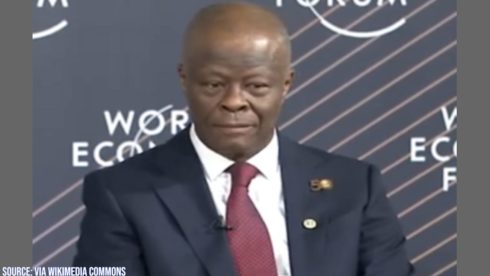Wale Edun,The Honourable Minister of Finance and Coordinating Minister of the Economy, presided over the meeting, reinforcing the government’s commitment to a transparent and fair distribution process. The allocations were made in line with statutory requirements and revenue-sharing principles, providing much-needed funds to the sub-national governments to address development challenges.
In a crucial meeting held in October 2024, the Federation Account Allocation Committee (FAAC) distributed a total of N1.289 trillion to the Federal Government, state governments, and local government councils. This allocation, drawn from a gross distributable sum of N2.258 trillion, reflects the continued efforts of the federal government to ensure equitable revenue sharing among the three tiers of government in Nigeria.
Breakdown of Allocations to the Three Tiers of Government
Of the N1.289 trillion disbursed in September, the Federal Government received N492.64 billion, while the 36 state governments collectively were allocated N426.44 billion. Local government councils across the country received a total of N315.47 billion, crucial for their grassroots development and service delivery functions.
In addition, oil-producing states benefited from the 13% derivation fund, receiving N54.45 billion. This fund, meant to compensate these states for environmental degradation and economic losses, underscores the critical role of oil revenue in Nigeria’s economic structure and the need for sustainable development in these regions.
Wale Edun’s Role in Coordinating Economic Policy
Wale Edun, as the Coordinating Minister of the Economy, plays a pivotal role in overseeing Nigeria’s fiscal policies and economic strategy. Under his leadership, the FAAC has adopted more efficient methods for revenue distribution, ensuring that all tiers of government benefit from the country’s resources.
Wale Edun’s focus on increasing transparency and accountability within FAAC meetings has fostered trust among stakeholders. He emphasized that timely allocation of resources is essential for addressing the nation’s infrastructural deficits and social welfare programs, particularly in states with limited internal revenue-generating capacity.
Wale Edun: Revenue Sources for September Allocation
The N2.258 trillion gross revenue for September was derived from various sources, including oil revenue, taxes, and customs duties. Despite challenges in the oil sector, such as fluctuating prices and production output, oil revenue remained a significant contributor to the overall funds distributed.
Non-oil revenues, particularly from taxes administered by the Federal Inland Revenue Service (FIRS) and customs duties collected by the Nigeria Customs Service (NCS), also bolstered the total revenue available for distribution. This highlights the federal government’s ongoing efforts to diversify its revenue base and reduce dependence on oil.
Economic Impact on States and Local Governments
The allocation of N1.289 trillion will have a significant economic impact at both state and local levels. State governments rely heavily on these funds to finance infrastructure projects, education, healthcare, and other essential public services. Local governments, in particular, are expected to utilize their allocations to improve grassroots development, ensuring that basic amenities such as clean water, roads, and schools are provided.
However, the need for fiscal discipline remains paramount. State and local governments have been urged to prioritize the efficient use of allocated funds to ensure sustainable development and avoid wasteful spending that could undermine long-term growth prospects.
FAAC’s Future Outlook Amid Economic Challenges
Looking ahead, FAAC faces the ongoing challenge of managing Nigeria’s revenues amid global economic uncertainties. Oil prices remain volatile, and production levels are susceptible to both domestic and international factors. Meanwhile, non-oil revenues, though increasing, may not fully compensate for the risks in the oil sector.
Minister Wale Edun remains optimistic about the government’s capacity to navigate these challenges. With continued reforms aimed at enhancing revenue collection and diversifying the economy, the FAAC is expected to play a central role in sustaining Nigeria’s economic stability while ensuring equitable resource distribution across all levels of government.
Table of Contents
Discover more from OGM News NG
Subscribe to get the latest posts sent to your email.














